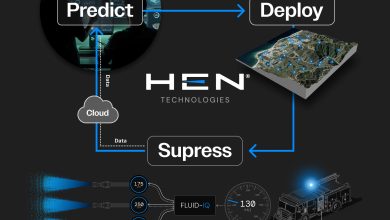
What began as a way to revolutionize efficiency in the backend of your online store has fundamentally shifted the entire ecommerce landscape.The 2025 holiday shopping season is the first time that AI is at the front and center, the first real test of an AI-driven retail world.
For years, brands have obsessed over the human consumer. But modern brands need to have a playbook for the consumer’s AI as well.
That’s not hype. Adobe’s research this year shows that 52% of the consumers plan to use AI for their holiday shopping in 2025.
Consumers aren’t just asking for quick recommendations. They’re using AI to conduct research (per 53% of respondents), receive product recommendations (40%), seek deals (36%), create shopping lists (30%), get present ideas (30%), find unique products (29%), and even try items on virtually (26%).
So, what does this mean for you?
AI use cases can allow smaller brands to finally compete with other retail giants. The backend efficiencies are great and still need to be implemented, but we’ve evolved quickly. Now, AI can be the front door to discovery, long-term loyalty and conversion—if done right.
This new age is one of the machine customers. With traditional consumers, you advertise, persuade and convert. But the discovery phase that everyone is used to is vanishing; hours of scrolling after searching for key words in Google can now be done in seconds with AI.
In the past, strong SEO and a few good key words got you visibility. Now, it’s about building rich product data and useful content for both the consumer and machines. Think about it this way: as important as human attention is, algorithmic preference matters just as much.
So ask yourself: When a consumer’s AI begins the search, will it find your brand or skip right past it?
This shift can feel daunting, especially for smaller teams watching larger brands charge ahead. But here’s the good news: AI is the greatest equalizer the industry has ever seen.
In the pre-AI age, some levels of personalization were only available to enterprise-level businesses. Now, brands of all sizes can access the same power without getting bogged down with enterprise-level complexity.
Imagine a small boutique using an AI shopping agent to offer white-glove level service online, or a local brand using conversational AI to guide customers through checkout, suggest products, and recover abandoned carts, all automatically.
That’s not a dream. That’s happening right now.
Small teams can deliver hyper-personalized experiences at scale. The features at the fingertips of merchants right now can create instant impact for potential consumers. With AR digital try-ons or live co-designs, consumers can get the look and feel of shopping in a boutique downtown all from the comfort of their own living room.
But behind every great use of AI is an evolving type of talent. For years, e-commerce roles became increasingly specialized: paid media experts, data analysts, UX designers, and CRM managers each owned a narrow slice of the funnel. Now, AI tools are connecting those silos, and professionals are thinking holistically about how product, data, creativity, and experience come together.
The AI-powered generalists are the marketers, merchandisers, and brand strategists who can speak the language of both creativity and code, who can use AI to translate insights into actions across the entire customer journey.
When looking at the possibility of how AI can transform ecommerce and level the playing field, it is hard to not get excited. There will always be the other side of the coin though, is AI here to replace all my team does? Simply put, no.
AI in ecommerce isn’t there to replace human insight, it’s there to expand it. Today’s AI tools can rapidly test, iterate, and analyze data at scale, but they still follow the strategy and direction set by humans. By integrating AI into your ecommerce stack, you give your team back the time they’ve been spending on manual workflows and admin tasks so they can refocus on what really matters, a deep understanding of customers and designing experiences that truly resonate.
In this next era of e-commerce, empowered generalists can connect the dots between technology, creativity, and consumer insight. The specialist era optimized efficiency, but the generalist era will optimize adaptability, imagination and human connection, the very traits that keep brands relevant in an AI-driven marketplace.
Technology is moving faster than ever, and e-commerce is evolving daily. To stay competitive, merchants need partners who understand the intricacies of not only the industry as a whole but the unique challenges so many smaller merchants face.


